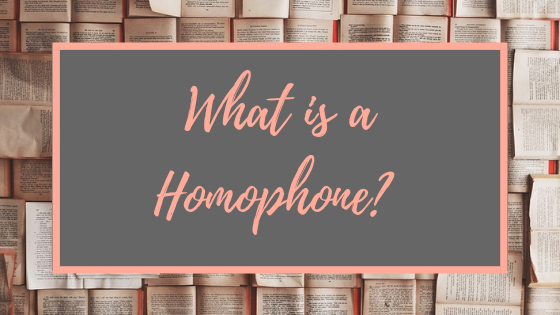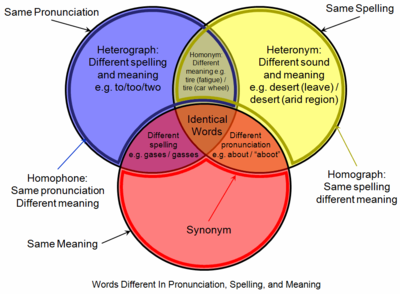There are many confusing things in English language but nothing is as confusing as homophones.
What is a Homophone?
Homophones are the words that sound the same but are spelled differently and have a different meaning. They are fairly common in the English language. Most adult people know the difference but it can be really confusing for a child just learning to read or people learning English.
There are several types of homophones:
- Homophone – all words that sound alike but have different meanings.
- Homograph – all words that sound the same and are spelled the same but have different meanings.
- Homonym – words that are spelled the same but have a different meaning
- Heterograph – words that sound the same but are spelled differently and have different meanings
- Multinym – words that sound the same but have more than two different meanings and spellings
Source: Wikipedia
Common Examples
-
-
Affect/Effect
-
Affect indicates influence. Effect is a noun, meaning consequence.
-
-
To/too/two
-
To is a preposition while too means excessive and two is a number.
-
-
Buy/by/bye
-
Buy means to purchase while by is a preposition used to show direction and bye means goodbye.
-
-
Weather/whether
-
Weather is a word used to describe the state of the atmosphere while whether is a conjunction which introduces choices.
-
-
Stationary/stationery
-
Stationary means that something is standing still while stationery means pens, pencils, paper, notebooks and so on.
-
-
Compliment/complement
-
Compliment means to say something nice to another person while to complement means something that enhances or completes.
-
-
Brake/break
-
Brake is a part or a motorized vehicle or a bicycle used to stop it while break means a pause.
-
-
Aloud/allowed
-
Aloud means to say something out loud and allowed means to give permission.
-
-
Lie/lay
-
To lie means to recline and lay means to place something somewhere. This is also often confused with to lie which means to not tell the truth and lye which is a strong alkaline solution.
-
-
Bear/bare
-
Bear is an animal but it could also mean supporting or holding. Bare means naked.
-
-
Their/they’re/there
-
This is one of the most common mistakes in spelling nowadays, especially on social media. Their means that something belongs to them, they’re is short for they are and there indicated the location.
-
-
Accept/except
-
Accept means to receive something and except means to exclude.
-
-
Know/no
-
Know means to be aware of something while no is a word opposite to yes.
-
-
Peace/piece
-
Peace is a state of serenity and piece is a part, an element of something.
-
-
Whole/hole
-
Whole means complete or entire and hole means the lack of something or something missing.
These have been some of the most commonly confused words in English language. Hopefully, this guide will help clear some of the confusion and assist you in using each word properly.

